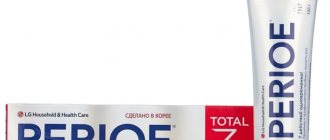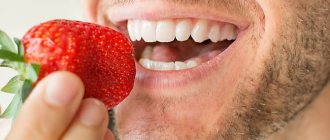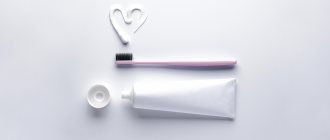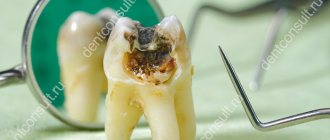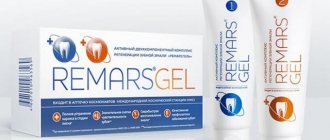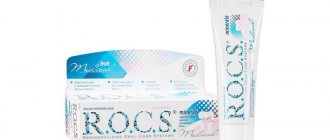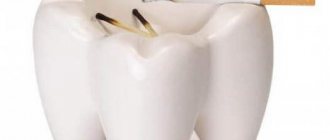Long gone are the days when everyone took calcium gluconate for strong teeth. Science moves forward, new chemical compounds are discovered, experiments are carried out with already familiar ones - in general, new interesting and useful information constantly appears. Including information about vitamins and minerals that have a positive effect on dental health.
Buying good vitamins in Moscow is not a problem now, however, this does not reduce the number of questions. For example, is it better to prefer single drugs or complex ones, how to take them - before or after meals; Which vitamins should an adult buy, and which ones are suitable for very young children?
All these questions will be answered by doctors and practicing dentists at one of the leading clinics in the capital.
Heredity is to blame for bad teeth
Reality : The role of heredity in the health of our teeth is extremely small and is manifested in the structure and properties of tooth tissue: enamel and dentin. In fact, a person even with not very good heredity has every chance of keeping his teeth healthy.
What to do?
Take proper care of your teeth throughout your life and make regular visits to your dentist.
Fact: Today, there is an opposite theory that lesions of specific teeth may indicate a predisposition to the pathology of a particular organ or an already existing disease.
Correlation of teeth affected by caries with pathology of internal organs
Vitamin C (ascorbic acid)
Ascorbic acid is the key to healthy teeth, as it improves nutrition of the mucous membrane, affects metabolism, as well as the processes of hematopoiesis and blood circulation in the capillaries and vessels of the gums. Healthy gums, in turn, nourish and “hold” teeth.
The main signs and consequences of vitamin C deficiency:
- swelling, inflammation and bleeding of the gums, which can lead to gingivitis;
- the appearance of wounds and ulcers in the oral cavity;
- dryness of the red border of the lips;
- loose gums;
- bad breath;
- frequent infectious diseases of the oral cavity;
- loosening of teeth;
- in an advanced stage – periodontitis and complete loss of all teeth.
Foods rich in vitamin C:
- parsley and dill;
- rose hip;
- citrus;
- some types of berries (sea buckthorn, strawberries, black currants, etc.);
- red pepper;
- apples, etc.
Foods high in vitamin C are the best way to prevent gum inflammation.
What vitamins and minerals are missing if you have bad teeth?
Most often, healthy and strong teeth are associated with calcium. What traditional medicine does not recommend for this is powder from eggshells, from corals, and even ordinary chalk. Unfortunately, the human body is much more complex than an ordinary chemical flask. Regular consumption of ground organic calcium will not always lead to a positive result.
In order to absorb the required amount of this substance, it is necessary to ensure that some other minerals and vitamins enter the body. Moreover, all of them must be either in an active form, or in such a form that our body itself can quickly convert them into such. A prerequisite is the stability of the complex in the aggressive environment of gastric acid, or, on the contrary, it should have a positive effect on the absorption of one or another substance we need.
When it comes to teeth, the presence of calcium, vitamin D3, magnesium, phosphorus and other active substances in the diet is mandatory. Despite the good reviews from adherents of “grandmother’s recipes,” it is unlikely that you will be able to limit your dental care to eggshells only.
Is it possible to get your daily requirement of vitamins and minerals from food?
The calcium content in our usual foods is quite high. With a balanced diet, there is no problem in getting the 1000 mg due to a person. Same with other essential vitamins and minerals. However, one nuance remains: does everyone adhere to a balanced diet, when the diet contains sufficient quantities of sea fish, fresh herbs, various vegetable oils, seeds and nuts?
Most often, the diet of the modern average person is poor in vitamins and minerals, so it is better to buy them. Fortunately, pharmacies have a huge selection of drugs indicating which vitamins and minerals they contain and in what quantities.
It is worth mentioning vitamin D separately. Whatever products contain it, the bulk of it is synthesized in the body under the influence of sunlight. This means, in addition to a balanced diet, we need to spend enough time outdoors on sunny days. How many working people can afford such luxury? This means that a good vitamin complex is simply a must for anyone who monitors their health, and in particular the condition of their teeth and oral cavity in general.
No one has ever died from a bad tooth
Reality: Infection coming from a diseased tooth (odontogenic infection) is one of the most dangerous. A diseased tooth is a source of pathogenic environment in the body. Numerous colonies of microorganisms live and multiply in the mouth, some of them quite aggressive. From a “neglected” diseased tooth, microbes can travel throughout the body, both independently and by causing allergization of the body, which leads to a decrease in immunity. In addition, ulcers on the roots with a decrease in immunity can lead to the development of serious complications (abscesses, phlegmon, osteomyelitis, etc.), and sometimes cause conditions incompatible with life.
Fact: Scientists have proven that the presence of multiple chronic foci of infection in untreated teeth in pregnant women leads to miscarriage and low fetal weight during childbirth.
What to do?
At least 1-2 times a year, undergo examination and professional hygiene at the dentist, which will help identify and effectively eliminate pathology in the initial stages of development.
Fact: Expenses of Russian residents, according to data at the beginning of the century, on certain types of goods and services (per year): - for vodka, beer, cigarettes - $12 billion, - for medicines - $2.2 billion, - for dental care – $600 million
The best material for crowns
E.max (Imax) or feldspathic ceramics on a zirconium oxide frame. Metal-ceramics are inferior to them in aesthetics, but are in no way inferior in strength - for chewing teeth this is an equally reliable, but less expensive choice. Metal-ceramics on a cobalt-chromium alloy, when manufactured with high quality, are no worse than metal-ceramic crowns on a gold or gold-platinum alloy.
B vitamins
Riboflavin (B2), niacin (B3), cyanocobalamin (B12) and other vitamins of this group are involved in many redox processes. They maintain the health of the oral microflora and prevent the development of dysbacteriosis; help fight gingivitis and periodontitis.
The main signs and consequences of B vitamin deficiency:
- inflammatory-dystrophic changes in the gums;
- the appearance of ulcers and wounds in the mouth;
- bad breath.
Foods rich in B vitamins:
- almonds, walnuts, as well as other nuts and seeds;
- cereals;
- whole wheat pasta;
- leafy vegetables;
- dairy products, cheese;
- meat;
- oranges, lemons;
- carrots, etc.
It is important that all vitamins of this group are present in the diet, especially B12, B6, B3, B2 and B1.
Vitamin A
The importance of vitamin A is extremely difficult to overestimate. It is necessary for the health of gums and mucous membranes; maintains their smoothness and resistance to disease. Also, this vitamin is needed for the formation of bone tissue and the proper functioning of metabolic processes. It maintains the strength of the enamel and protects it from destruction.
The main signs and consequences of vitamin A deficiency:
- the enamel becomes rough and loses its shine;
- the gums and mucous membranes of the mouth become inflamed, redness and swelling appear, and stomatitis may occur;
- wounds and ulcers in the mouth do not heal for a long time;
- Tooth mobility develops and they can become loose;
- the enamel becomes fragile and prone to destruction.
Foods rich in vitamin A:
- carrots and other vegetables and fruits that are orange in color;
- green vegetables;
- spinach;
- milk, butter, cheese;
- eggs;
- caviar, fish, etc.
A sufficient amount of vitamin A helps maintain not only health, but also white teeth.
The best material for bridges
Feldspar ceramics on a zirconium oxide framework or E.max on a zirconium oxide framework. Metal-ceramic dentures, having the same strength, look a little less natural, but when combined with removable clasp locking prosthetics, they come out on top.
